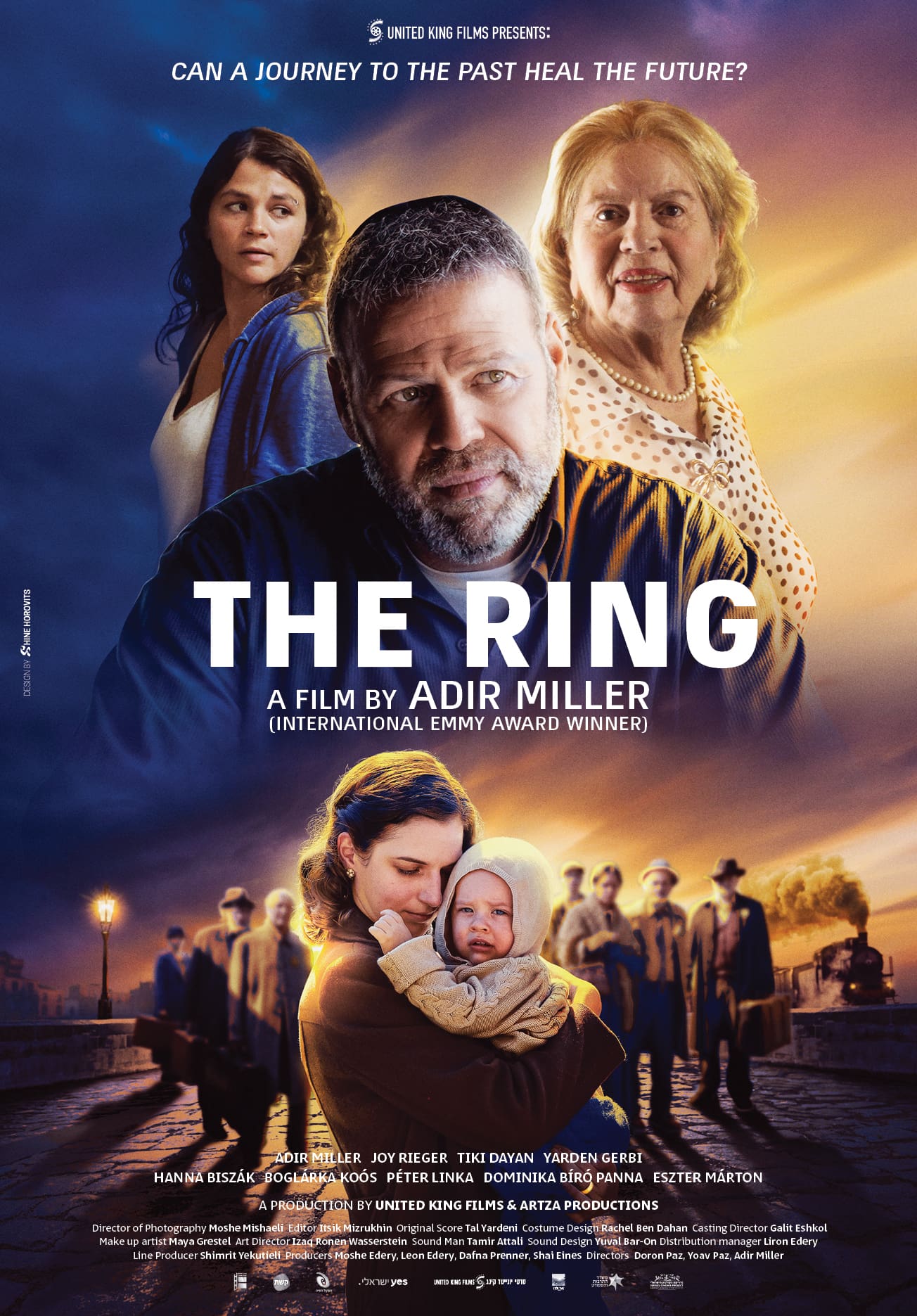
A heart-warming dramady about three generations and the family history that reconnects them.

Can a journey to the past heal the future?
Arnon Noble is a religious man with a strong bond to his mother, a Holocaust survivor. He usually drives her to school lectures where she tells the students how she saved the lives of her baby boy and herself with the help of a thin gold ring. When the mother’s health deteriorates, he travels to her old hometown, Budapest to search for the mythological ring that saved her life in the past. He turns for help to his estranged daughter who is a TV researcher and offers her to go on this journey together. Will the search for the ring be successful? Will the ring save the mother’s life again and will the same ring that saved his mother also succeed in saving Arnon’s relationship with his own daughter.
The Ring won the Best Film Audience Award at the Cleveland Jewish Film Festival
In the rare event that a screening must be postponed due to weather or technical issues, ticket holders who contact us prior to our next screening will be eligible to exchange their ticket for a future screening if they cannot attend on the rescheduled date. Please contact [email protected] with questions or concerns.
To fulfill our mission to educate, inspire, entertain, and highlight the diversity and commonality of our community, we are pleased to share additional resources for you to explore!
Listen to this podcast exploring key issues currently shaping Israel and the Jewish World, with host deputy editor Amanda Borschel-Dan speaking with comedian/filmmaker Adir Miller and his mother Marianne Miller, a child Holocaust survivor.
The Ring is more than a family drama — it explores how Holocaust memory continues to shape the lives of children and grandchildren of survivors. This idea is often called “transgenerational effects”: the ways in which trauma, resilience, and memory are carried forward through families and communities.
🔗 Read More About Transgenerational Effects
Scholars have studied how Holocaust survivors’ experiences influence not only their own children, but also later generations — in identity, values, and even in how stories are told and retold. Understanding these effects helps us see why artifacts like a gold ring can hold such profound meaning, connecting the past to the present.
During the Holocaust, attitudes toward Jews ranged from indifference to hostility. Many stood by silently as neighbors were deported, and some even profited from the loss of Jewish homes and businesses.
Yet in this time of moral collapse, a small minority chose a different path. Known today as the Righteous Among the Nations, these courageous individuals risked their lives—and often the lives of their families—to hide Jews, forge false papers, and help them escape.
Their actions carried enormous risk. In many countries, discovery meant imprisonment or execution. Still, these rescuers, coming from many nations and walks of life, acted out of humanity and conscience.
The Righteous Among the Nations remind us that even in the darkest times, ordinary people can make extraordinary choices.